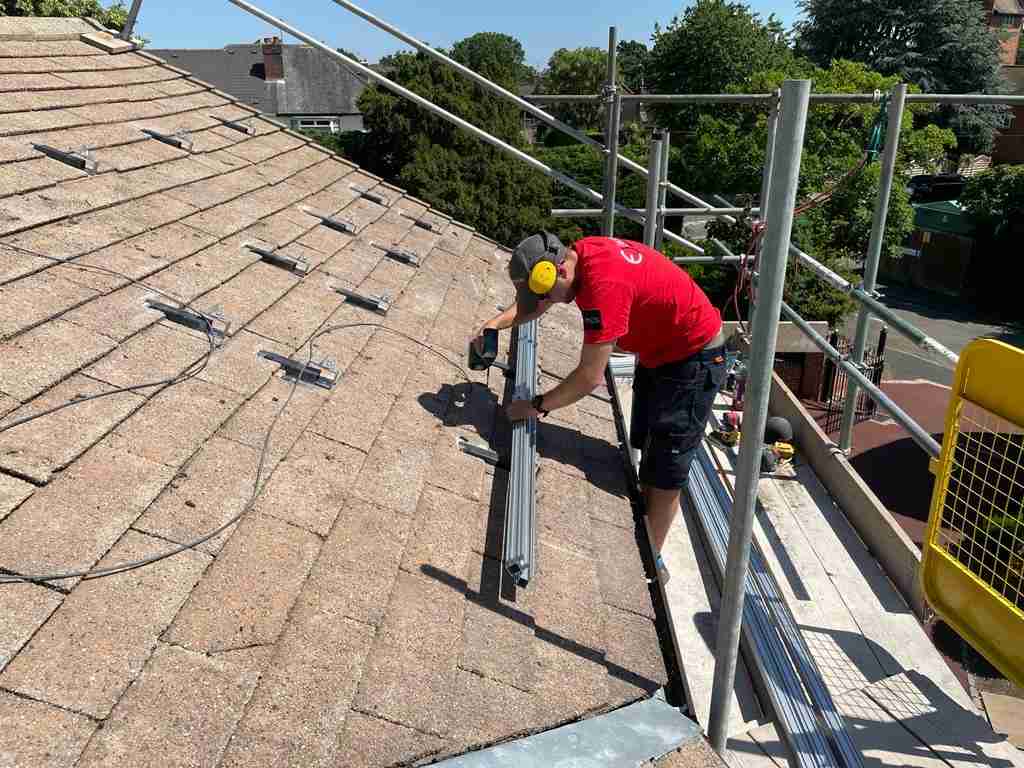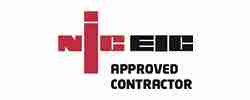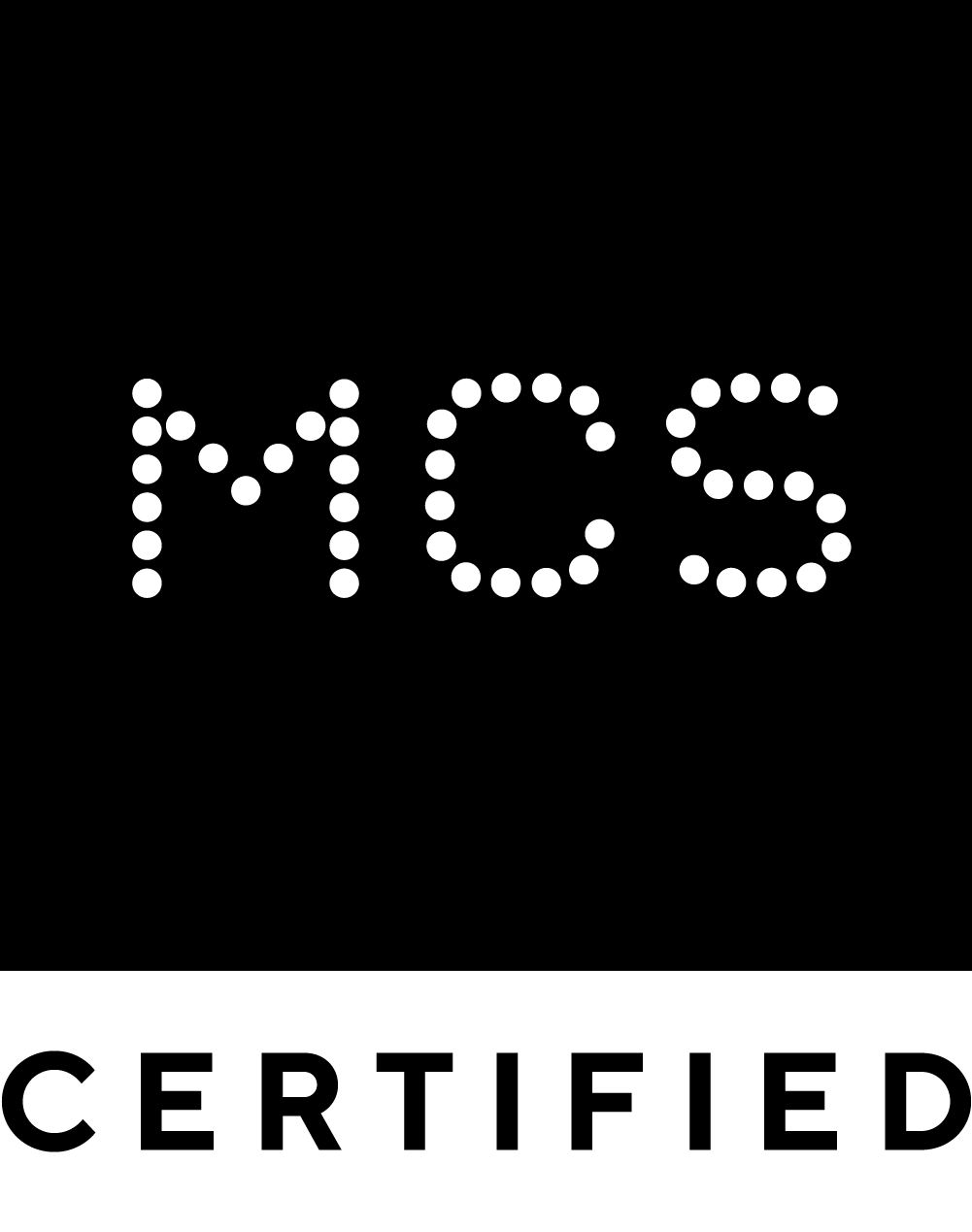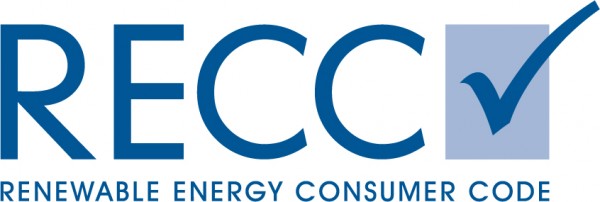As electricity prices continue to fluctuate and environmental concerns grow, more people are turning to solar as a stable, sustainable, cost-effective energy solution.
With this growing interest, many people are wondering if they can install solar panels themselves. The idea of a DIY solar panel installation is appealing. It promises potential cost savings, the satisfaction of completing a complex project and the ability to customise your system to your exact specifications. But is it really feasible for the average homeowner?
Before you climb onto your roof with a toolbox in hand, it’s crucial to understand the risks and considerations involved in DIY solar panel installation.
Understanding solar panel installation
Domestic solar systems are far more complex than they might appear at first glance. A typical system consists of several key components, each requiring specific knowledge and expertise to install correctly:
- Solar panels: These are the visible part of the system, converting sunlight into electricity.
- Inverter: This device converts the direct current (DC) electricity produced by the panels into alternating current (AC) electricity used in your home.
- Mounting equipment: These secure the panels to your roof and help them withstand various weather conditions.
- Wiring: This connects the solar components and integrates the system with your home’s electrical setup.
- Battery: If you’re installing an off-grid or hybrid system, you’ll need battery storage for the excess energy.
The technical knowledge required to install these components goes well beyond basic DIY skills. You’ll need a solid understanding of electrical systems, including how to work safely with both DC and AC electricity. You’ll also need to calculate electrical loads, understand solar panel efficiency and be able to design a system that maximises energy production based on your roof’s orientation and angle.
Safety is also paramount. Solar installation involves working at height, often on steep and slippery roofs. You’ll be handling heavy panels and working with high-voltage electrical systems. A single mistake could lead to severe injury or damage to your property.
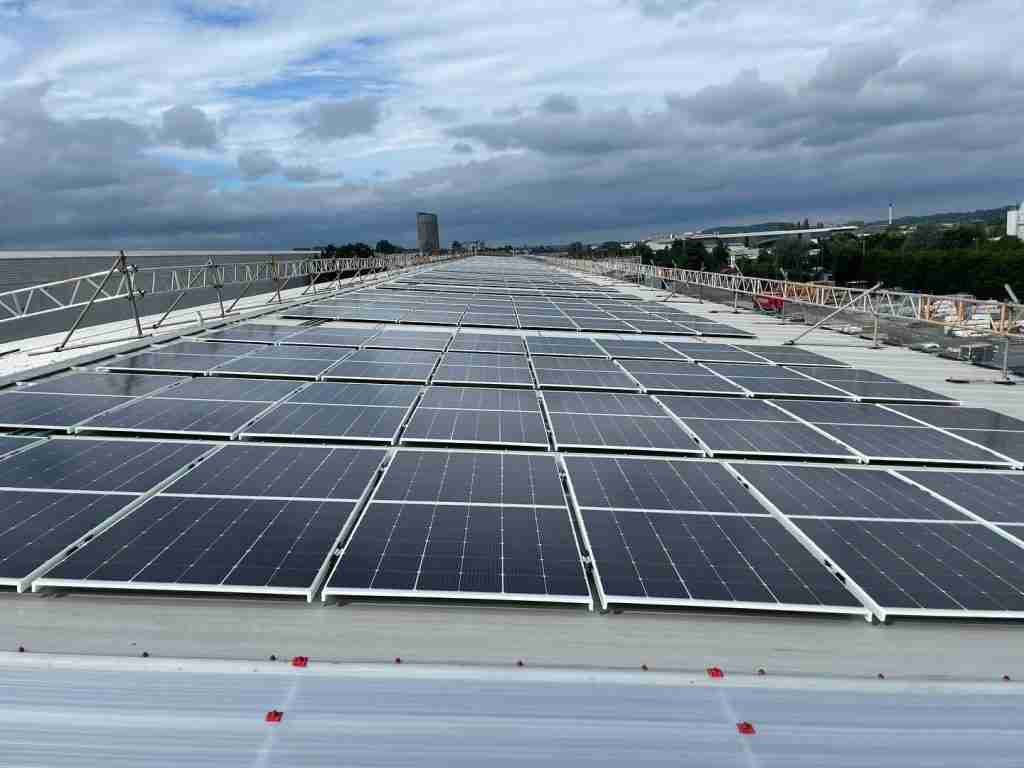
Legal and regulatory requirements
In the UK, solar panel installation is subject to various legal and regulatory requirements. While many roof-mounted residential solar systems can be installed under Permitted Development rules and don’t require formal planning permission, there are exceptions. If you live in a listed building, a conservation area or an Area of Outstanding Natural Beauty, you may need to obtain planning permission before installing solar panels.
Even if you don’t need planning permission, your installation must comply with Building Regulations. These ensure that the additional weight of the solar panels won’t compromise your roof’s structural integrity. You may need to have your roof professionally assessed and reinforced before proceeding with installation.
Electrical safety is another major concern. In the UK, certain electrical work must be carried out by a qualified professional. After installation, you’ll need to obtain an electrical safety certificate from a certified electrician. And if you’re hoping to benefit from the Smart Export Guarantee scheme, your system must be installed by an MCS-certified (Microgeneration Certification Scheme) installer. DIY installations aren’t eligible for this scheme, which could significantly impact the financial benefits of your solar system.
Drawbacks of DIY solar panel installation
Solar installation involves serious safety risks. Working on a roof carries the danger of falls, which can result in severe injuries. Incorrect electrical connections can lead to fires or electrocution. These risks are significantly reduced when working with professional installers who have proper training and safety equipment.
Without professional expertise, there’s a high risk of installing a solar system incorrectly. This can lead to reduced efficiency, meaning your panels won’t generate as much electricity as they should. In the worst-case scenario, improper installation could damage your roof or the solar equipment itself.
Many solar panel manufacturers void their warranties if the panels aren’t installed by a certified professional. Additionally, your home insurance policy may not cover damage or accidents resulting from a DIY solar installation. Professional installers can typically complete a residential solar installation in a few days. As a DIY project, it could take weeks or even months, especially if you’re learning as you go.
And as a DIY installer, you may struggle to obtain the necessary permits and certifications. Without these, your system may not be legally compliant or eligible for incentives like the Smart Export Guarantee.
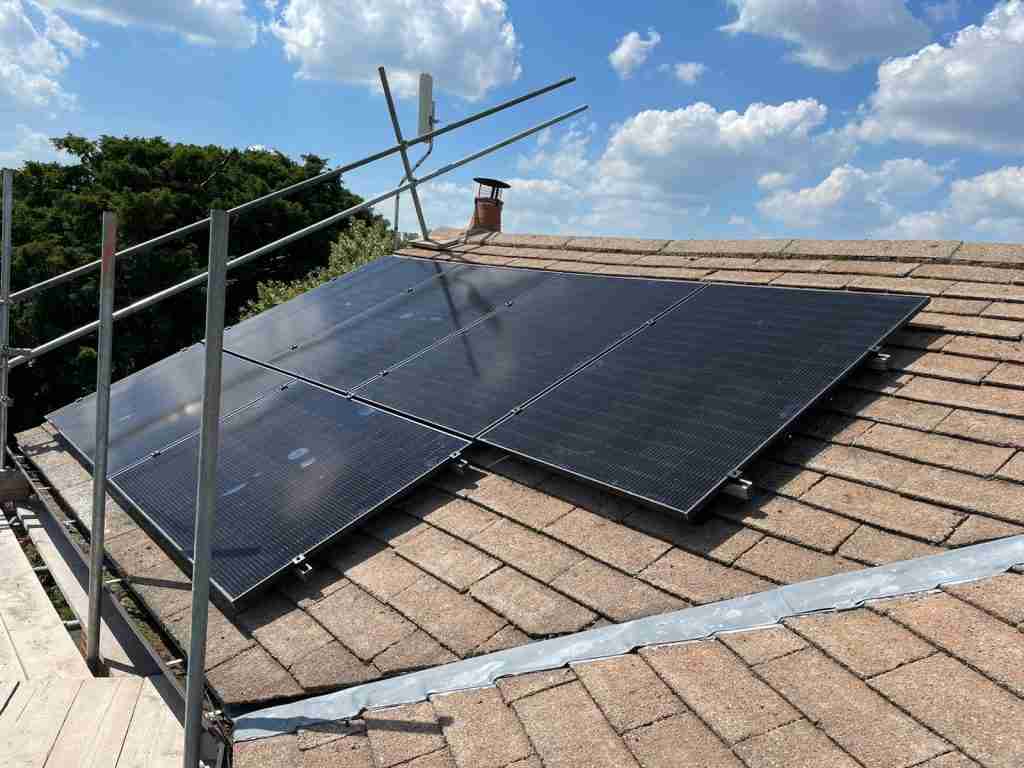
Skills and tools needed for DIY installation
If you’re still considering DIY installation, it’s essential to honestly assess your skills and resources. You’ll need a comprehensive understanding of both DC and AC electrical systems. This includes knowing how to safely work with high-voltage systems, how to size wires and conduits properly and how to integrate the solar system with your home’s existing electrical setup.
Installing solar panels requires you to work on and potentially modify your roof. You’ll need to know how to locate rafters, attach mounting brackets securely and ensure your roof remains watertight after installation.
Solar installation is physically demanding. You’ll need to be comfortable working at height and be able to lift and manoeuvre heavy panels and equipment. Beyond a standard DIY toolkit, you’ll need specialist equipment. This might include scaffold and solar panel hoists, DC-rated electrical tools, specialised testing equipment and safety gear for working at height. The cost of acquiring these tools can offset some of the savings from DIY installation.
Why work with a professional solar installer?
A certified solar installer like Electrical Innovations brings years of experience and in-depth knowledge to your project. Our team stays up-to-date with the latest technologies and best practices in solar installation. We have access to high-quality equipment and materials, often at better prices than you could obtain as a consumer. We also know how to design and install systems for optimal performance.
We can complete the installation much faster than a DIY approach, minimising disruption to your daily life. We can also ensure that your system complies with all relevant regulations and standards. We’ll certify your installation, making it eligible for schemes like the Smart Export Guarantee.
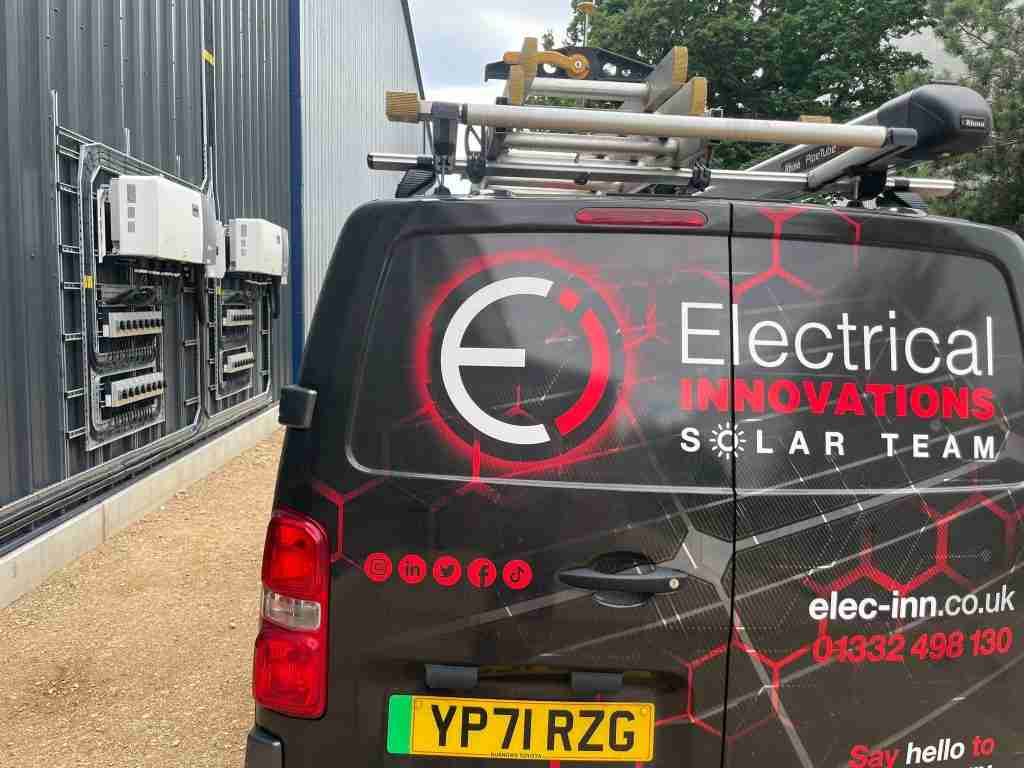
How can Electrical Innovations help?
While DIY solar panel installation is technically possible, it’s a complex and dangerous task. It requires significant skills, knowledge and equipment. The risks and challenges outweigh the potential benefits for most homeowners. Professional installation offers peace of mind, ensuring your system is safe, efficient and compliant. It may cost more upfront, but the long-term benefits of a properly installed system are worth it.
Solar energy is a fantastic investment in your home and the environment, but only when it’s done right. So, if you’re ready to take the plunge but don’t trust your DIY skills, give us a call.
We can design, supply and install the best solar system for your home and take care of all the legal, compliance and safety issues so you don’t have to. To find out more and for a free, no-obligation consultation and quote, get in touch today.

